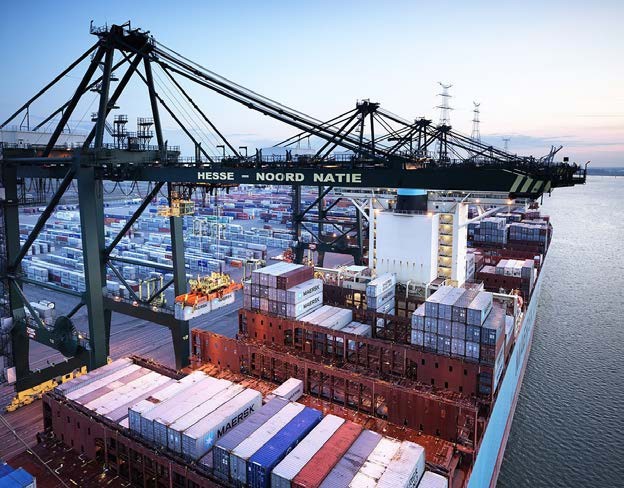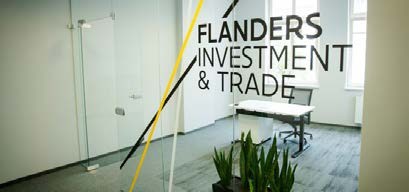Industry Insight
Over 90% of vaccines in UK imported from Flanders
Astrid Geeraerts, Head of Investment at Flanders Investment & Trade, explores why such a significant amount of the vaccines used in the UK comes from Flanders and what this means in the ongoing COVID-19 pandemic

As the COVID-19 pandemic slowly falls off our front pages and the industry has made the necessary changes to account for Brexit, there are some interesting lessons for everyone in the biopharmaceutical sector to learn from the vaccine, on the importance of continued collaboration and the critical role of logistics.
Between 1 April 2021 and 1 July 2022 official figures show that 151,248,820 COVID-19 vaccines were administered in the UK over three doses. In 2021, Flanders exported 115,825,505 COVID-19 vaccines to the UK, and during the first half of 2022 another 22,489,517, making a total of 138,315,022 coming from this region of Belgium or over 90% of all vaccines administered. This doesn’t account for any vaccines wasted or that were then exported to other countries, but it does show the scale of the collaboration between the UK and Flanders in the pharmaceutical sector. It also shows that Brexit has not lessened the importance of that partnership.
The Belgian, and particularly Flanders, biopharma sector leads much of the EU (and the world). Per capita, Belgium invests more in R&D than any other country in the EU.
“ The infrastructure, logistics, specialist know-how and history of collaboration were therefore already in place pre-vaccine and the challenges of Brexit had already been managed ”

In 2021, Belgium:
• Invested around €14m per day in R&D
• Exported €230m in biopharmaceuticals every single day
The results are, in large part, driven by Flanders, which represents nearly 82% of all of Belgium's exports and where the export of pharma products alone reached over €58bn in 2021.
One of the challenges of Brexit was that, although the same rules apply in every EU country, there are significant differences in the way the new rules are interpreted. A single point of entry to the EU quickly became the sensible strategy to minimise bureaucracy, particularly in a sector that can be as complex as pharmaceuticals. This was just one of many reasons why Flanders became a hub for vaccines.
Brexit should have meant that the vaccines were no longer approved by the European Medicines Agency (EMA), but had to be signed off by the UK’s MHRA. However, ahead of the agreement reached in December 2020, the MHRA asked for, and was granted, emergency powers to decide on vaccines without waiting for EMA. It was this that enabled the UK to approve the Pfizer vaccine ahead of the EU or other countries. The MHRA stated that it would keep adopting European authorisation decisions for another two years.
The practical impact of this decision was that EMA or MHRA approval was enough to legally supply the COVID-19 vaccine in the UK. In practice, this meant that either side of ‘exit day’, either EMA or MHRA approval would be enough to make it legal to supply a COVID-19 vaccine.
The next challenge for the vaccine was transportation, particularly with the vaccines that were temperature sensitive. In this, Flanders has geographical advantages and world-leading infrastructure.
The region is centrally placed in one of the world’s highest concentrations of people, money and industries. Belgium is, of course, one of the closest of the EU countries to the UK, but Flanders can also boast that 60% of Europe’s purchasing power is located within a 500km radius.
In terms of transport logistics, Flanders has three international seaports, three international airports, one of the world’s densest road networks, and extremely well-connected railroad and inland waterway networks. The highways of Flanders link to those of France, Germany, the Netherlands and those of the UK via ferry links and the Channel Tunnel. As a result, logistics companies and distribution centres are able to transport goods from Flanders to most major European markets within 24 hours and, of course, time was of critical importance during the pandemic.
The dominance of Flanders’ vaccine effort was given a significant boost by the national airport (air travel is usually the preferred option for vaccines). Besides being a hub that connects Flanders to the rest of the world (200 non-stop destinations), Brussels Airport also provides state-of-the-art infrastructure. The airport has a specialised hub for storing temperature sensitive pharma (and biotech) so they can be quickly exported globally. It was the first airport in the world to receive the CEIV (Centre of Excellence in Pharmaceutical Handling) Pharma certification.
The Airport developed the programme in collaboration with IATA (International Air Transport Association). It validated the CEIV checklist together with the pharmaceutical shippers in the BRU pharma shipper’s forum. The majority of all pharmaceutical shipments handled at Brussels airport, are consequently going through a fully certified cool chain.
Flanders also has low supply chain costs, laws that encourage start-up businesses, similar corporation tax rates to the UK for SMEs and no business rates. As a result, even before the COVID-19 pandemic, global pharmaceutical companies, such as Pfizer, were already establishing bases in Flanders as the single-entry point to the EU. Over the past six years, Pfizer alone has invested over €500m into Flanders.
As a result, the infrastructure, logistics, specialist know-how and history of collaboration were therefore already in place pre-vaccine and the challenges of Brexit had already been managed. The pandemic simply provided an extreme and unexpected test.
Ken Chow, health tech counsel and science and technology officer at Flanders Investment & Trade, London, commented: “Flanders continues to place a very high value on our relationship with Britain; it remains one of the region’s most important trading partners. At Flanders Investment & Trade (FIT), we have been helping numerous British pharmaceutical companies access the EU and Flanders, as well as innovative businesses in the HealthTech and MedTech space. Please do check with us before you engage expensive consultants. We may be able to give you the relevant advice at no charge, if not we can make sure that you’re engaging someone reputable at a competitive price.”
References:
1. Visit: coronavirus.data.gov.uk/details/vaccinations
2. Visit: nbb.be/en